
We are not free from environmental risks that accompany the development of human societies. Modern economic development has accelerated environmental pollution, caused loss of natural habitats, and modified landscapes. These environmental changes have impacted natural systems: water and heat circulation, nutrient cycling, and biodiversity. These ch...
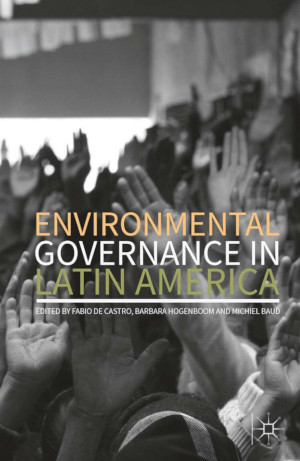
The multiple purposes of nature - livelihood for communities, revenues for states, commodities for companies, and biodiversity for conservationists - have turned environmental governance in Latin America into a highly contested arena. In such a resource-rich region, unequal power relations, conflicting priorities, and trade-offs among multiple goal...
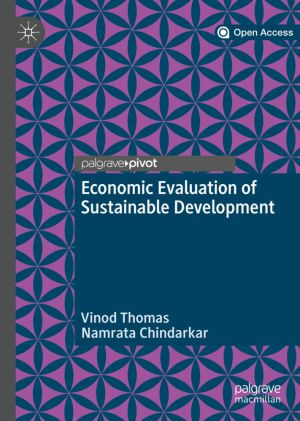
This book presents methods to evaluate sustainable development using economic tools. The focus on sustainable development takes the reader beyond economic growth to encompass inclusion, environmental stewardship and good governance. Sustainable Development Goals (SDGs) provide a framework for outcomes. In illustrating the SDGs, the book employs thr...
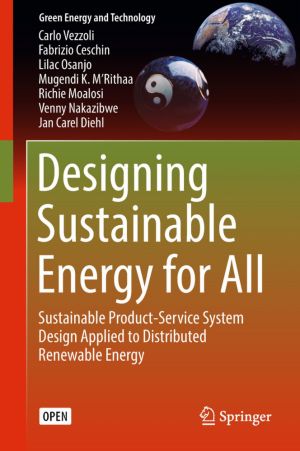
This book addresses the issue of diffusing sustainable energy access inlow- and middle-income contexts.
Access to energy is one of the greatest challenges for many people living in low-income and developing contexts, as around 1.4 billion people lack access to electricity.Distributed Renewable Energy systems (DRE) are considered a promising approa...
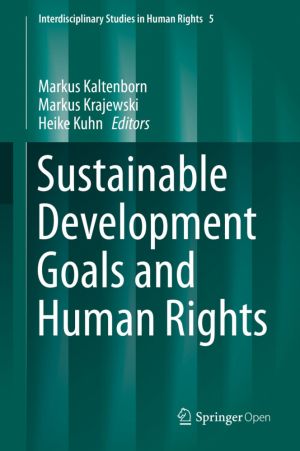
This free book analyses the interplay of sustainable development and human rights from different perspectives including fight against poverty, health, gender equality, working conditions, climate change and the role of private actors. Each aspect is addressed from a more human rights-focused angle and a development-policy angle. This allows compari...
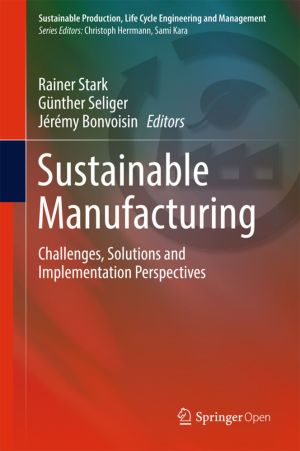
Sustainability imposes an unprecedented challenge on society and has become the driving force of an urgent search for innovative solutions in all branches of economy. Manufacturing plays a key role in many areas of human living, and it is both part of the problem and of the solution. This book offers an overview of the broad field of research on s...
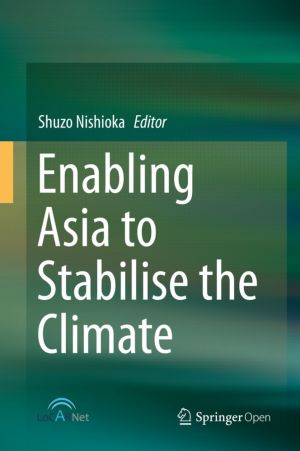
This book presents good practices in Asia and ASEAN countries for effectively promoting advances in response to climate change, which can help to achieve sustainable development in Asia and around the world. As a proposal, the aim is to influence the discussions at COP 21 by providing a positive agenda with concrete actions from an Asian perspectiv...
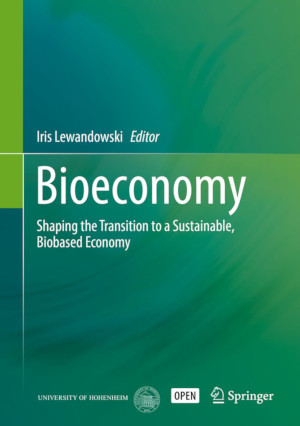
This book defines the new field of "Bioeconomy" as the sustainable and innovative use of biomass and biological knowledge to provide food, feed, industrial products, bioenergy and ecological services. The chapters highlight the importance of bioeconomy-related concepts in public, scientific, and political discourse. Using an interdiscipli...
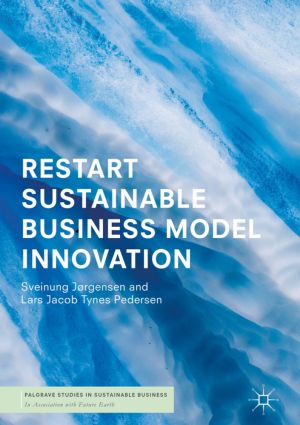
Taking the business model as point of departure, this book explores how companies and organizations can contribute to a more sustainable future by designing innovative models that are both sustainable and profitable. Based upon years of research, it draws together theoretical foundations and existing literature on the topic of sustainable business ...
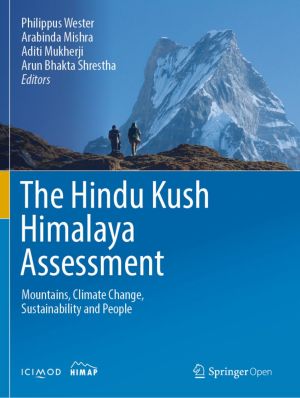
This open access volume is the first comprehensive assessment of the Hindu Kush Himalaya (HKH) region. It comprises important scientific research on the social, economic, and environmental pillars of sustainable mountain development and will serve as a basis for evidence-based decision-making to safeguard the environment and advance people's w...
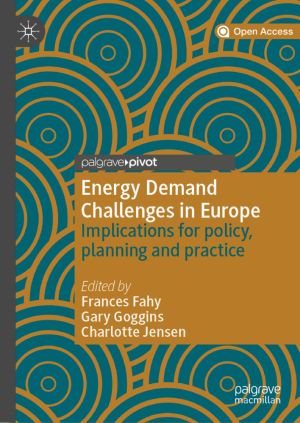
This book examines the role of citizens in sustainable energy transitions across Europe. It explores energy problem framing, policy approaches and practical responses to the challenge of securing clean, affordable and sustainable energy for all citizens, focusing on households as the main unit of analysis. The book revolves around ten contributions...
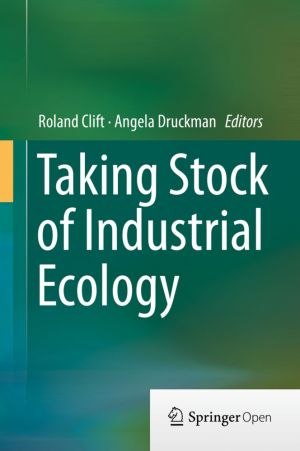
How can we design more sustainable industrial and urban systems that reduce environmental impacts while supporting a high quality of life for everyone? What progress has been made towards reducing resource use and waste, and what are the prospects for more resilient material-efficient economies? What are the environmental and social impacts of glob...
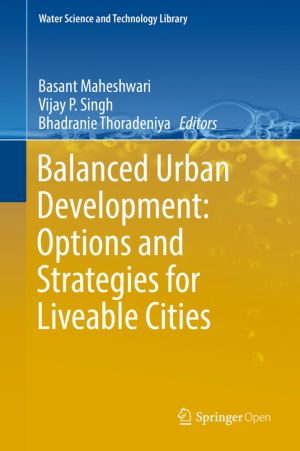
This book provides a unique synthesis of concepts and tools to examine natural resource, socio-economic, legal, policy and institutional issues that are important for managing urban growth into the future. The book will particularly help the reader to understand the current issues and challenges and develop strategies and practices to cope with fut...
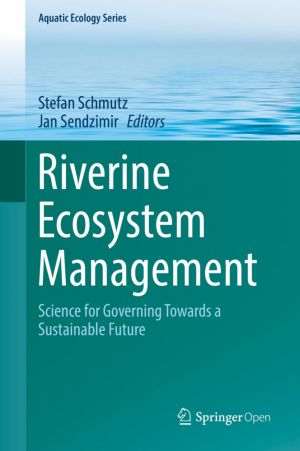
This book surveys the frontier of scientific river research and provides examples to guide management towards a sustainable future of riverine ecosystems. Principal structures and functions of the biogeosphere of rivers are explained; key threats are identified, and effective solutions for restoration and mitigation are provided. Rivers are among ...
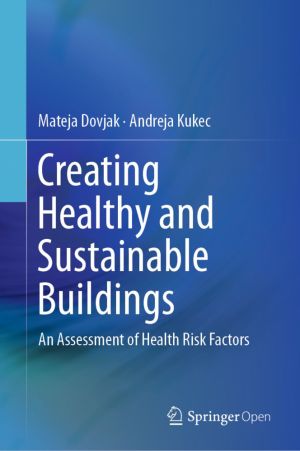
The open access book discusses human health and wellbeing within the context of built environments. It provides a comprehensive overview of relevant sources of literature and user complaints that clearly demonstrate the consequences of lack of attention to health in current building design and planning. Current designing of energy-efficient buildin...
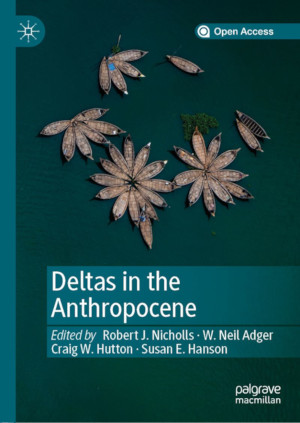
The Anthropocene is the human-dominated modern era that has accelerated social, environmental and climate change across the world in the last few decades. This book examines the challenges the Anthropocene presents to the sustainable management of deltas, both the many threats as well as the opportunities. In the world's deltas the Anthropocen...

This book focuses on the global cycles of energy, water and carbon, which are not only the essentials of our main energy carriers, the fossil fuels, but are also the building blocks of life. The book offers an overview of the basic scientific facts and relationships that are needed to understand today's energy generation and use, how they rela...
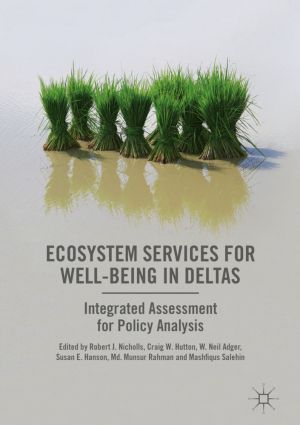
This book answers key questions about environment, people and their shared future in deltas. It develops a systematic and holistic approach for policy-orientated analysis for the future of these regions. It does so by focusing on ecosystem services in the world's largest, most populous and most iconic delta region, that of the Ganges-Brahmaput...
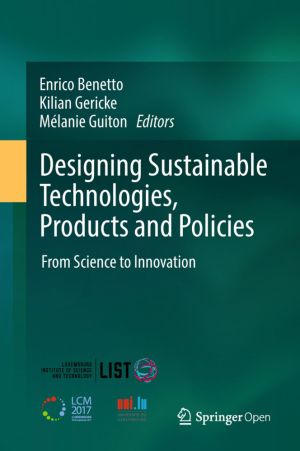
This book provides insight into the implementation of Life Cycle approaches along the entire business value chain, supporting environmental, social and economic sustainability related to the development of industrial technologies, products, services and policies; and the development and management of smart agricultural systems, smart mobility syste...
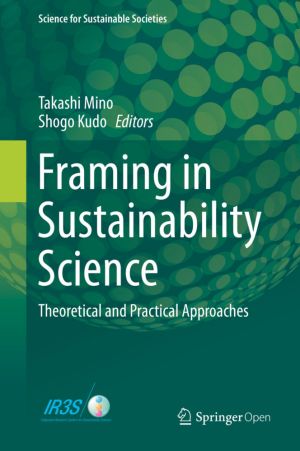
This book offers both conceptual and empirical descriptions of how to "frame" sustainability challenges. It defines "framing" in the context of sustainability science as the process of identifying subjects, setting boundaries, and defining problems. The chapters are grouped into two sections: a conceptual section and a case sect...
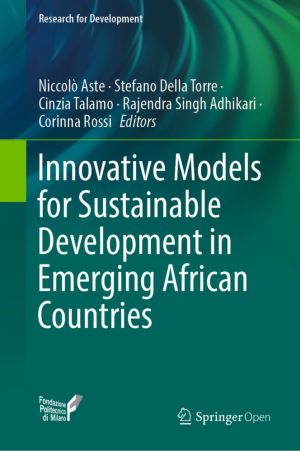
This free book explores key issues and presents recent case studies in areas of importance for the transition to a circular model of development in emerging African countries that will minimize resource consumption and waste production. The topics covered include the development of sustainable housing models, energy and environmental issues in buil...
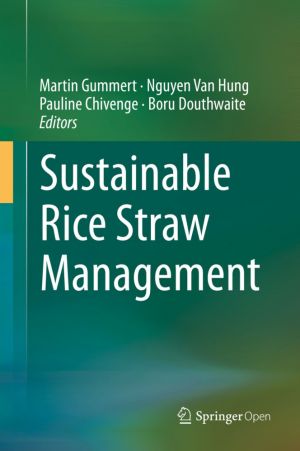
This free book on straw management aims to provide a wide array of options for rice straw management that are potentially more sustainable, environmental, and profitable compared to current practice. The book is authored by expert researchers, engineers and innovators working on a range of straw management options with case studies from Vietnam, th...

"This compact book argues that ideas about accountability and legitimation – drawn from work on environmental governance – can open up new analytical perspectives on what is holding back effective energy system transformation. With bite-size chapters and illustrative cases that draw on the work of five expert witnesses, this is a novel int...
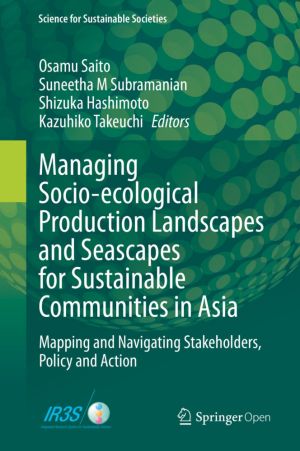
This free book presents up-to-date analyses of community-based approaches to sustainable resource management of SEPLS (socio-ecological production landscapes and seascapes) in areas where a harmonious relationship between the natural environment and the people who inhabit it is essential to ensure community and environmental well-being as well as t...
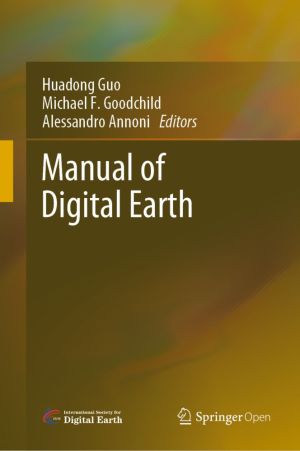
This open access book offers a summary of the development of Digital Earth over the past twenty years. By reviewing the initial vision of Digital Earth, the evolution of that vision, the relevant key technologies, and the role of Digital Earth in helping people respond to global challenges, this publication reveals how and why Digital Earth is beco...
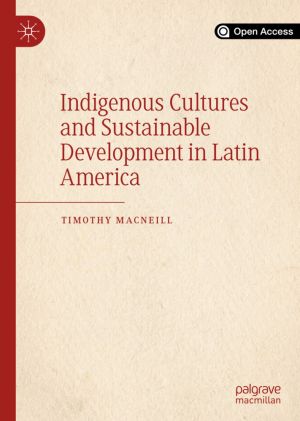
This book outlines development theory and practice overtime as well as critically interrogates the "cultural turn" in development policy in Latin American indigenous communities, specifically, in Guatemala, Honduras, Ecuador, and Bolivia. It becomes apparent that culturally sustainable development is both a new and old idea, which is simu...
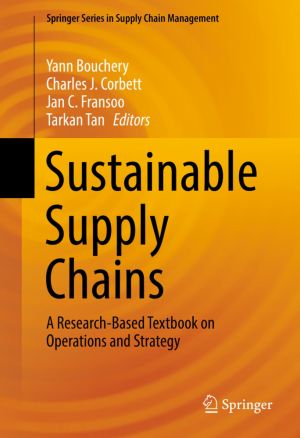
This book is primarily intended to serve as a research-based textbook on sustainable supply chains for graduate programs in Business, Management, Industrial Engineering, and Industrial Ecology, but it should also be of interest for researchers in the broader sustainable supply chain space, whether from the operations management and industrial engin...
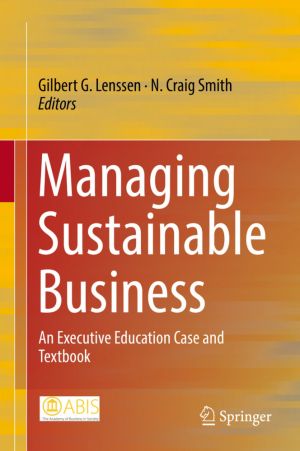
This book offers 32 texts and case studies from across a wide range of business sectors around a managerial framework for Sustainable Business. The case studies are developed for and tested in executive education programmes at leading business schools.The book is based on the premise that the key for managing the sustainable business is finding the...
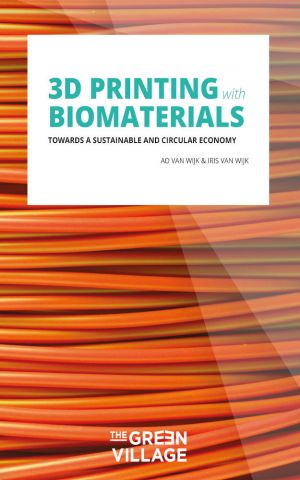
Additive manufacturing or 3D printing, manufacturing a product layer by layer, offers large design freedom and faster product development cycles, as well as low startup cost of production, on-demand production and local production. In principle, any product could be made by additive manufacturing. Even food and living organic cells can be printed. ...
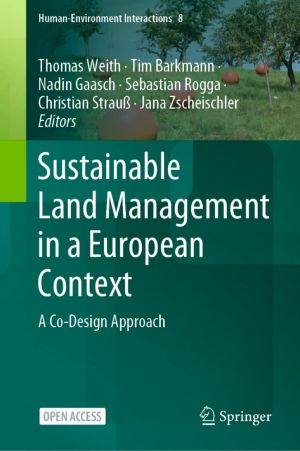
This open book present and discuss current issues and innovative solution approaches for land management in a European context. Manifold sustainability issues are closely interconnected with land use practices. Throughout the world, we face increasing conflict over the use of land as well as competition for land.
Drawing on experience in sustainab...
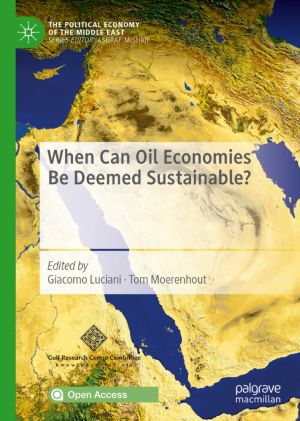
This open book questions the stereotype depicting all Gulf (GCC) economies as not sustainable, and starts a critical discussion of what these economies and polities should do to guarantee themselves a relatively stable future.
Volatile international oil markets and the acceleration of the energy transition has challenged the notion that oil revenu...
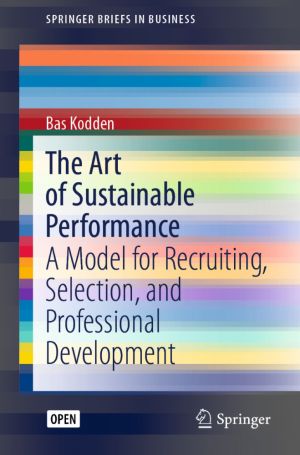
This open access book revisits common notions on how to select and recruit the right employees. It reveals that the secret of successful individuals and teams lies in a combination of talent and four important performance indicators, offering an innovative approach that companies can fruitfully adopt. Bas Kodden has studied key performance indicato...
